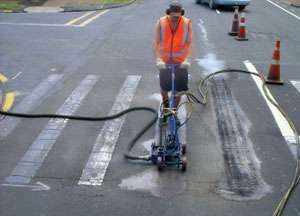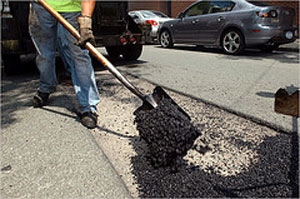Roading Construction Worker
Tasks & duties

Roading construction workers may do some or all of the following:
-
check the machinery and equipment is in good working order
-
meet with other workers to discuss issues such as safety, hazards, the environment and the day's work
-
dig up road surfaces and create trenches for new cables or drains to be laid
-
tip and spread gravel and apply seal onto the surface
-
control the rate at which materials are tipped
-
compact and smooth the surface using a roller
-
pour and smooth concrete
-
carry out general carpentry duties
-
lay or repair pipes and drains
-
operate earthmoving machinery
-
direct and control traffic moving around a site being worked on
-
maintain machinery and equipment
Skills & knowledge

Roading construction workers need to have:
-
driving skills to operate heavy equipment and machinery
-
knowledge of the materials they use such as asphalt, road metals, and drainage pipes
-
knowledge of road construction methods and road marking
-
communication skills
-
basic maths skills
-
surveying skills and the ability to read plans
-
record keeping skills
Entry requirements
To become a roading construction worker you must be at least 18 years old. Most employers prefer you to have your driver's and heavy vehicle licence (Class G or I) before you start work. For further information on driver licensing contact Land Transport New Zealand.
Training on the job
Skills are gained on the job. Courses are available in operating machinery, first aid, drainlaying, traffic control and management. On-the-job training can lead to national certificate qualifications. For further information contact Infratrain.
Useful experience
Useful experience may include labouring, work driving heavy vehicles or work using machinery, or carpentry.
Related courses
Automotive Vehicle Operations
Plant and Machine Operations
Road Construction
For more information, please refer to Career Services.
Document Actions
